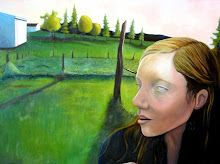The other day I had a tour with a woman and her six year old grandson that made me start to think about representing history to young children. I've had a few other tours like this one they go something like this:
I meet the visitors in the front yard of the Boone House and the kids are running all over the place and not paying attention. Once gramma and grandpa get them to calm down and stand next to them they start covering their faces or hiding behind their grandparent's legs. I go into a dumbed down version of my regular introduction. I want to both keep the kids interested and give the adults something to think about. I ask the kids questions like "Why did the quakers start moving to America?" "Why Pennsylvania?" Was America an independent country yet? If they are 8 or older they can answer these questions, if not they have no clue. They won't answer me when I ask them anyway. The grandparents have to repeat what I am saying to them to get them to answer. This pattern contnues for the entire tour. The most I can stress to them is that people in the past had no refrigerators, electricity, or playstations like we do today. They had to grow their own food and make their own clothes. And their beds weren't very comfortable either.
After these tours I usually ask myself how? How do you talk to a six year old about colonialism? How do you get them to understand religious persecution when they don't even have a firm grasp of what religion is yet? How do you tie the house you are presenting to them into a history that they have not learned in school? How do you talk to them about different ethnic groups, and why the pennsylvania germans did things differently from the english in the oley valley?
I don't know how to answer these questions. When I was very young I didn't have much of a concept of history either. I divided time into three periods. There was now, or modern day,which began around the time that my parents were born. Then there was the Olden Days as I called them, where people were peasants who made their own clothes and lived in dirty quaint little houses. Then there was Bible times, which was nearly incomprehensible it seemed so long ago, but during which time all the stories that I had heard in Sunday School had taken place. It wasn't until I was in second or third grade that this all started to change.
How do you get a child to understand the past? Maybe you can't. Maybe you just have to try harder to relate it to their everyday life. Maybe you just have to wait until they are older.
Subscribe to:
Post Comments (Atom)


No comments:
Post a Comment